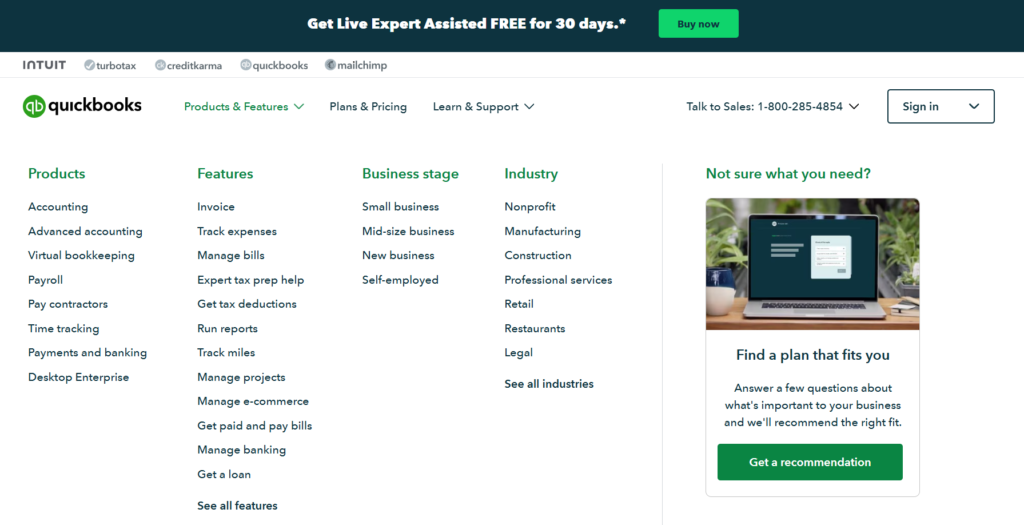How to Start Freelance Writing Career: A Comprehensive Guide to Success
Starting a freelance writing career can feel like stepping into the unknown, but I’ve been there! If you’ve ever wondered how to start freelance writing career and make it successful, this guide is for you. The idea of working from anywhere, setting your schedule, and getting paid to write is incredibly appealing. But how do you turn that dream into a reality? In this guide, I’ll walk you through the steps to kickstart your freelance writing journey, sharing tips, personal insights, and actionable advice to help you succeed in how to start freelance writing career.
Discovering Your Niche
Finding the right niche is one of the first and most crucial steps when you’re learning how to start a freelance writing career. A well-defined niche helps you focus your efforts, target clients effectively, and establish yourself as an expert in your chosen area. If you want to know how to start freelance writing career successfully, you need to start by discovering what you love to write about and where you have expertise. This will make your career more enjoyable and marketable.
Finding Your Focus
When I first started freelance writing, I felt overwhelmed by the sheer number of topics I could write about. The key to star a freelance writing career is finding your niche. Your niche is the specific area or topic you specialize in, and it helps you stand out in a crowded market.
Why a Niche Matters
Having a niche allows you to:
- Establish Expertise: Clients are more likely to hire you if you demonstrate deep knowledge in a particular area.
- Streamline Your Marketing: It’s easier to target your marketing efforts when you know who your ideal clients are.
- Command Higher Rates: Specialized writers often charge more because they offer unique expertise.
How to Choose Your Niche
- Assess Your Interests and Strengths: Think about what you’re passionate about and where your strengths lie. Do you love technology, health, travel, or finance? Choosing something you enjoy will keep you motivated.
- Research Market Demand: Use tools like Google Trends or Ahrefs to see what topics are trending and have steady demand.

- Evaluate Competition: While a niche with high demand is great, too much competition can make it harder to stand out. Look for areas where you can offer something unique.
- Consider Profitability: Some niches are more lucrative than others. For example, writing for the finance or tech industries can often lead to higher-paying gigs compared to general lifestyle writing.
How to Start Freelance Writing Career by Building a Strong Portfolio
Your portfolio is your writing resume and a key part of starting a freelance writing career. If you want to know how to start freelance writing career and stand out, building a strong portfolio is critical. It showcases your best work, helps potential clients see your value, and differentiates you from other writers. Remember, a solid portfolio is often what will convince a client to hire you, so take your time to craft a portfolio that truly shines.
Why Your Portfolio Matters
Your portfolio is your writing resume. It showcases your best work and demonstrates your ability to potential clients. A strong portfolio can make the difference between landing a job and being overlooked.
Creating Your Portfolio
- Start with Spec Pieces: If you’re new to freelance writing, create sample articles in your chosen niche. These don’t have to be published anywhere; they just need to showcase your writing skills and knowledge.
- Include Published Work: As you start getting gigs, add those articles to your portfolio. Real client work adds credibility and shows you can meet client expectations.
- Showcase Variety: Include different types of writing samples, such as blog posts, articles, case studies, and copywriting pieces. This variety demonstrates your versatility.
- Highlight Your Best Work: Quality over quantity is key. It’s better to have a few excellent pieces than many mediocre ones.
Tips for an Effective Portfolio
- Organize by Category: If you write in multiple areas, categorize your samples to make it easy for clients to find relevant examples.
- Include Brief Descriptions: Add a short description for each sample, explaining the context and any notable achievements (e.g., increased website traffic).
- Use a Professional Design: A clean, easy-to-navigate portfolio website can make a great first impression. Tools like WordPress or Wix offer user-friendly templates.

Finding Your First Clients to Start Freelance Writing Career
To successfully start a freelance writing career, you need to find your first clients. When learning how to start freelance writing career, finding clients is often the most daunting step. There are numerous platforms and strategies to help you get started, and building those early relationships is key to gaining traction. From freelance marketplaces to specialized job boards and cold pitching, each method offers unique advantages for those who are just beginning. To explore some of the best freelance writing jobs available, check out this comprehensive guide on freelance writing jobs.
Where to Look for Freelance Writing Jobs
Landing your first clients can be daunting, but there are numerous platforms and strategies to help you get started:
- Freelance Marketplaces: Websites like Upwork, Freelancer, and Fiverr connect freelancers with clients. While competition can be stiff, these platforms are great for beginners.

- Job Boards: Check out specialized job boards like ProBlogger, Freelance Writing Jobs, and Contena.

- Social Media: LinkedIn is a powerful tool for networking and finding freelance opportunities. Join relevant groups and engage with potential clients.
- Cold Pitching: Identify businesses or websites in your niche and send them personalized pitches. This proactive approach can yield great results if done correctly.
- Networking: Attend industry events webinars and join online communities related to your niche. Building relationships can lead to referrals and job opportunities.
Crafting the Perfect Pitch
Your pitch is your first impression. Here’s how to make it count:
- Personalize It: Address the client by name and mention something specific about their business or website.
- Showcase Your Value: Explain how your skills and experience can help them achieve their goals.
- Include Samples: Provide links to your portfolio or attach relevant writing samples.
- Be Concise: Keep your pitch clear and to the point. Clients appreciate brevity.
Example Pitch
Subject: Freelance Writer to Enhance Your Blog Content
Hi [Client’s Name],
I came across your website, [Client’s Website], and was impressed by your recent article on [Specific Topic]. I’m a freelance writer specializing in [Your Niche], and I’d love to contribute to your blog by creating engaging and SEO-friendly content that resonates with your audience.
Here are a few samples of my work:
– [Link to Sample 1]
– [Link to Sample 2]
I’m confident that my expertise can help [Client’s Website] continue to grow and provide valuable insights to your readers. Let me know if you’d like to discuss this further.
Best regards,
[Your Name]
Setting Your Rates When Starting a Freelance Writing Career
Setting rates can be one of the trickiest aspects of learning how to start a freelance writing career. When you’re new to the industry, understanding what is fair and competitive can be challenging. It’s important to set fair rates that reflect your skills and experience while also being competitive in the market. If you want to know how to start freelance writing career with a clear pricing strategy, remember that confidence in your worth is key, even when starting out.
Determining Your Worth
Setting your rates can be tricky, especially when you’re just starting. You want to ensure you’re fairly compensated without pricing yourself out of the market.
Factors to Consider
- Experience and Expertise: More experienced writers can command higher rates. If you have specialized knowledge in a niche, that can also justify higher fees.
- Project Complexity: Complex projects that require extensive research or specialized knowledge should be priced higher than straightforward writing tasks.
- Market Rates: Research what other freelance writers in your niche and with your level of experience are charging. Websites like Glassdoor and Payscale can provide insights.

- Time Investment: Consider how much time each project will take and ensure your rate compensates you fairly for your time.
Pricing Models
- Per Word: Charging by the word is common in freelance writing. Rates can vary widely based on niche and experience, typically ranging from $0.05 to $1 per word.
- Per Hour: Charging by the hour can be suitable for projects with unclear scopes. Ensure you track your time accurately to avoid undercharging.
- Per Project: Flat-rate pricing can be beneficial for well-defined projects. It provides clients with a clear upfront cost and can be lucrative if you work efficiently.
How to Raise Your Rates Over Time
- Deliver Quality Work: Consistently producing high-quality work justifies higher rates.
- Expand Your Skills: Learning new skills or specializing further can make you more valuable to clients.
- Build a Strong Reputation: Positive testimonials and a solid portfolio can support rate increases.
- Communicate Clearly: When increasing your rates, communicate the value you provide and give clients ample notice.
How to Start Freelance Writing Career and Master Time Management
Managing your time is essential when starting a freelance writing career, especially when juggling multiple projects. Effective time management is crucial to the question of how to start freelance writing career successfully. By managing deadlines effectively, creating schedules, and balancing workloads, you can ensure that your freelance writing career stays on track, helping you build a strong reputation with clients.
Balancing Multiple Projects
One of the biggest challenges freelance writers face is managing multiple projects simultaneously. Effective time management is crucial to ensure you meet deadlines without burning out.
Tips for Effective Time Management
- Create a Schedule: Use tools like Google Calendar or Trello to organize your tasks and deadlines.
- Set Priorities: Identify which projects are most urgent or important and tackle those first.
- Break Tasks into Smaller Steps: Breaking down larger projects into manageable tasks can make them less overwhelming and easier to complete.
- Avoid Multitasking: Focus on one task at a time to improve efficiency and reduce errors.
- Take Breaks: Regular breaks can help maintain productivity and prevent burnout. The Pomodoro Technique is a great way to structure work and rest periods.
- Set Boundaries: Establish clear work hours and communicate them to clients to prevent work from encroaching on your time.
Tools to Enhance Productivity

- Time Tracking: Apps like Toggl or Harvest allow you to monitor how much time you spend on each project.
- Distraction Blockers: Tools like Freedom or StayFocusd can help minimize distractions while you work.
Marketing Yourself Effectively to Start a Freelance Writing Career
Marketing is crucial if you want to start a freelance writing career and attract clients. Learning how to start freelance writing career involves understanding how to market your skills and services effectively. Your brand reflects who you are as a writer and helps potential clients understand the value you bring. From building a professional website to leveraging social media and starting a blog, these marketing strategies will help you attract clients who are interested in your niche expertise. Additionally, using the right platforms is key to finding opportunities; check out this list of the best freelance writing websites in 2025 to help you market yourself effectively and find consistent work opportunities: Best Freelance Writing Websites in 2025.
Building Your Brand
Marketing yourself is essential to attracting clients and establishing a strong freelance writing career. Your brand reflects who you are as a writer and how you present yourself to potential clients.
Strategies to Market Yourself
- Create a Professional Website: Your website should showcase your portfolio, services, testimonials, and contact information. Platforms like WordPress or Squarespace make it easy to build a polished site.
- Leverage Social Media: Use platforms like LinkedIn, Twitter, and Instagram to share your work, connect with industry professionals, and engage with potential clients.
- Start a Blog: Blogging about topics in your niche not only showcases your expertise but also improves your website’s SEO, making it easier for clients to find you.
- Network: Attend virtual events webinars, and join online communities related to your niche. Building relationships can lead to referrals and job opportunities.
- Email Marketing: Collect email addresses from your website visitors and send regular newsletters with updates, tips, and links to your latest work.
Optimizing Your Online Presence
- SEO: Optimize your website and blog posts for search engines by incorporating relevant keywords, creating high-quality content, and building backlinks.
- Consistent Branding: Use consistent colours, fonts, and imagery across all your platforms to create a recognizable brand.
- Professionalism: Ensure your website is free of errors, easy to navigate, and provides a seamless user experience.
Continuously Improving Your Skills
Staying Ahead in the Game
The world of freelance writing is constantly evolving, and staying up-to-date with the latest trends and skills is essential for long-term success.
Ways to Improve Your Skills
- Take Online Courses: Platforms like Coursera, Udemy, and Skillshare offer courses on various aspects of writing, SEO, and digital marketing.

- Read Regularly: Stay informed about your niche by reading blogs, industry publications, and books. This keeps your knowledge current and sparks new ideas.
- Join Writing Groups: Engaging with other writers through groups or forums can provide support, feedback, and opportunities for collaboration.
- Seek Feedback: Constructive criticism from clients or peers can help you identify areas for improvement and refine your writing style.
- Practice Consistently: The more you write, the better you become. Set aside time each day or week to work on your writing skills.
Investing in Your Development
I invested in several online courses focused on SEO and content marketing, which significantly improved my ability to create content that ranks well on Google. This not only helped my clients but also boosted my own website’s traffic.
High-Authority Reference
For comprehensive guides on improving your writing skills, check out the Purdue Online Writing Lab, a reputable resource offering extensive writing tips and resources.
How to Start Freelance Writing Career and Overcome Challenges
Starting a freelance writing career comes with its own set of challenges, but with the right strategies, they are certainly surmountable. If you’ve ever wondered how to start freelance writing career while managing challenges like inconsistent work, managing finances, and dealing with rejection, rest assured that you are not alone. Building resilience, setting goals, and staying connected with other writers are just some of the ways you can stay motivated and continue to grow your freelance career.
Navigating the Freelance Landscape
Freelance writing comes with its own set of challenges, but with the right strategies, you can overcome them and thrive in your career.
Common Challenges and Solutions
- Finding Consistent Work:
- Solution: Diversify your client base and utilize multiple platforms to find gigs. Building long-term relationships with clients can also lead to repeat work.
- Managing Finances:
- Solution: Keep track of your income and expenses using accounting software like QuickBooks or FreshBooks. Set aside money for taxes and unexpected expenses.

- Dealing with Rejection:
- Solution: Reframe rejection as a learning opportunity. Seek feedback when possible and use it to improve your pitches and writing.
- Maintaining Work-Life Balance:
- Solution: Set clear boundaries between work and personal time. Create a dedicated workspace and stick to a consistent schedule.
- Staying Motivated:
- Solution: Set achievable goals, celebrate your successes, and connect with other freelancers for support and inspiration.
Conclusion
Embarking on a freelance writing career is an exciting journey filled with opportunities and challenges. By discovering your niche, building a strong portfolio, finding your first clients, setting fair rates, mastering time management, marketing yourself effectively, and continuously improving your skills, you can truly master how to start freelance writing career. Remember, every successful freelance writer started where you are now. Stay persistent, keep learning, and don’t be afraid to take risks. Your passion for writing and dedication to your craft will pave the way for a fulfilling and prosperous freelance career.
Remember, every successful freelance writer started where you are now. Stay persistent, keep learning, and don’t be afraid to take risks. Your passion for writing and dedication to your craft will pave the way for a fulfilling and prosperous freelance career.
Ready to take the next step? Start by outlining your niche and creating a few sample articles today. And don’t forget to check out our Freelance Writing Portfolio Tips to help you build a portfolio that attracts clients!




Comments 5